Scientists claim to have found the first known extraterrestrial protein in a meteorite.
Team’s goal is to take the aircraft up into the icy stratosphere to 25km above the Earth.
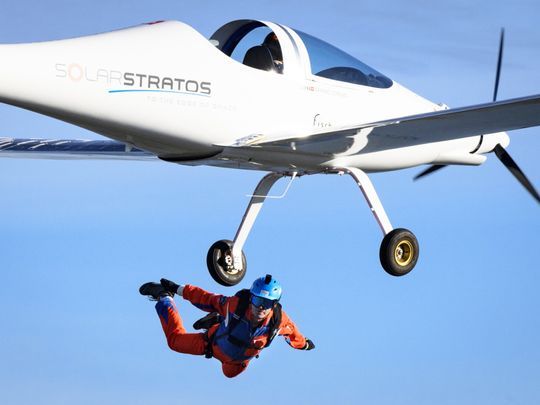
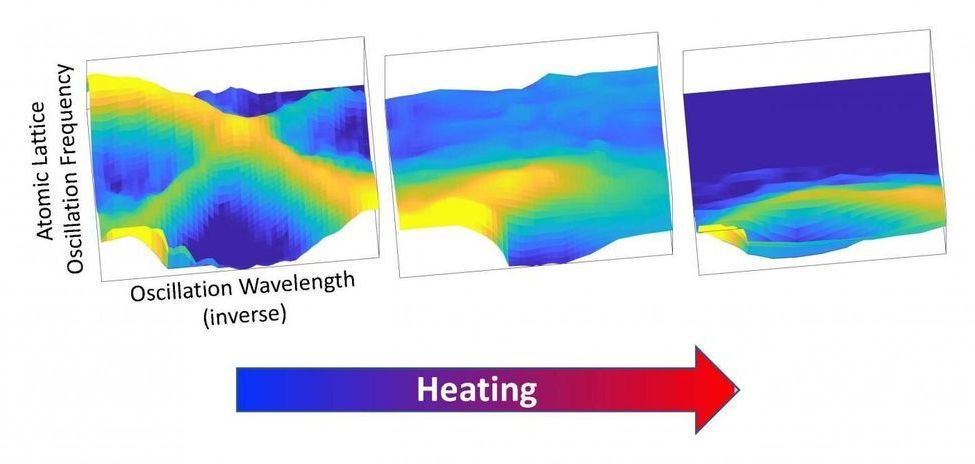
Materials scientists at Duke University have uncovered an atomic mechanism that makes certain thermoelectric materials incredibly efficient near high-temperature phase transitions. The information will help fill critical knowledge gaps in the computational modeling of such materials, potentially allowing researchers to discover new and better options for technologies that rely on transforming heat into electricity.
The results appear online on September 4 in the journal Nature Communications.
Thermoelectric materials convert heat into electricity when electrons migrate from the hot side of the material to the cold side. Because providing a temperature difference between its two sides is required, researchers are interested in trying to use these materials to generate electricity from the heat of a car’s tailpipe or recovering energy lost as heat in power plants.
The is truly unique; as a single seat (or single plus pillion), twin jet, HSA Motorcycle, it is a world’s first in many ways. At just 2.3m long and under 1m wide, it is the smallest of all Gibbs High speed amphibious platforms, and very probably the most technically advanced. It represents true freedom for the individual; serious fun.
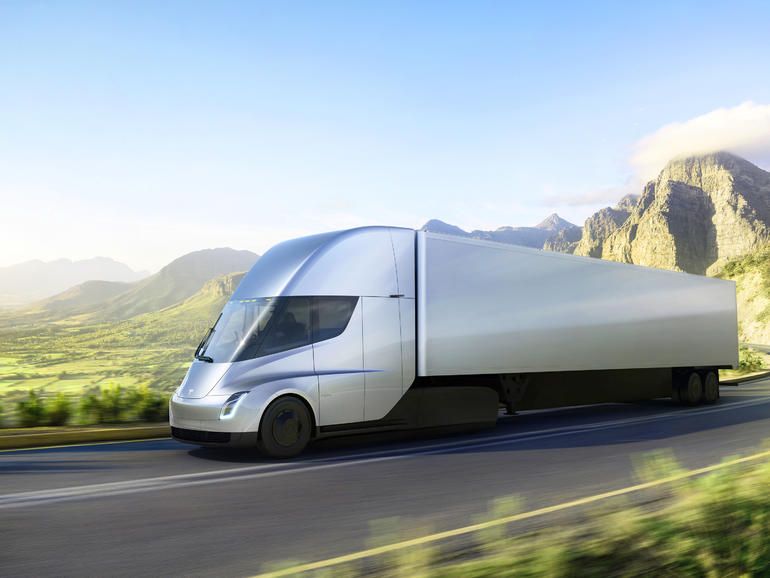
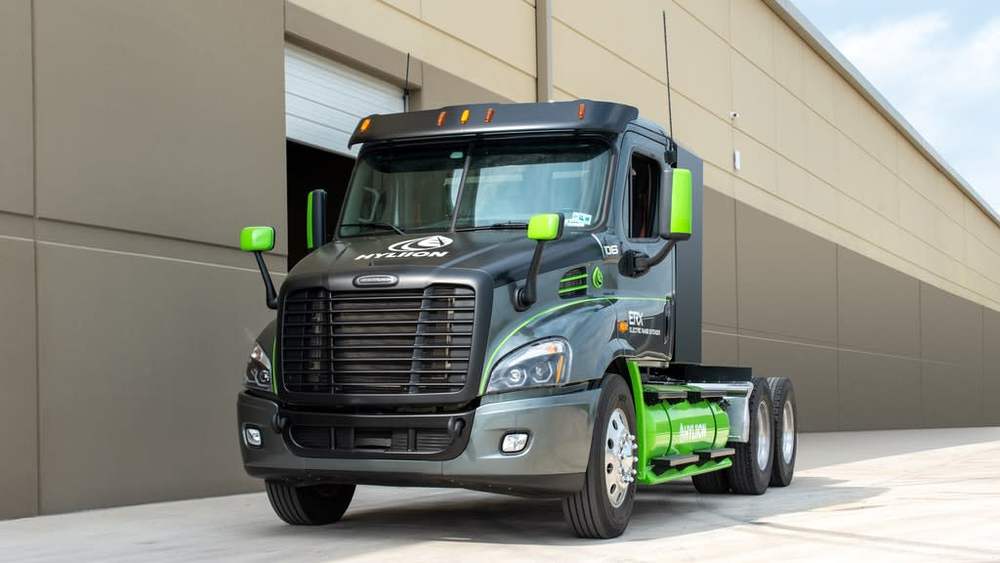
Special purpose acquisition company Tortoise Acquisition Corp. and electric truck company Hyliion will vote on their merger on Sept. 28, meaning there will likely soon be another EV player on the market, according to a recent filing with the Securities and Exchange Commission.
The companies announced their intention to merge in June, shortly after Nikola went public through a reverse merger with VectoIQ, also a special purpose acquisition company or SPAC.
Once the deal closes, the combined company will be known as Hyliion Holdings Corp., and it will trade on the New York Stock Exchange under the ticker HYLN. Through the merger Hyliion will receive $560 million, which will be used to accelerate product commercialization.

If Mad Max bikes were electric they would probably look like this design rendering from Shane Baxley. An electric power unit, orbital wheels, two-sided swingarm, manual transmission and a raw minimalistic bodywork complete the package.
Hollywood-based concept artist and vehicle designer Shane Baxley created this motorcycle design rendering on his computer. And it looks mind-boggling. The electric motorcycle design features cyberpunk lines and wheels without hubs. The idea of a hubless wheel bike is not new as it was conceived by an Italian designer, Franco Sbarro, in the 1980s.
To create a striking visual effect, the electric motorcycle is fitted with spokeless wheels equipped with knobby tires. As we said before, the wheels are hubless and the functionality of the wheel hub is taken over by the rim while the two-sided swingarm is connected to the inside of the bike at three points at the front and rear.
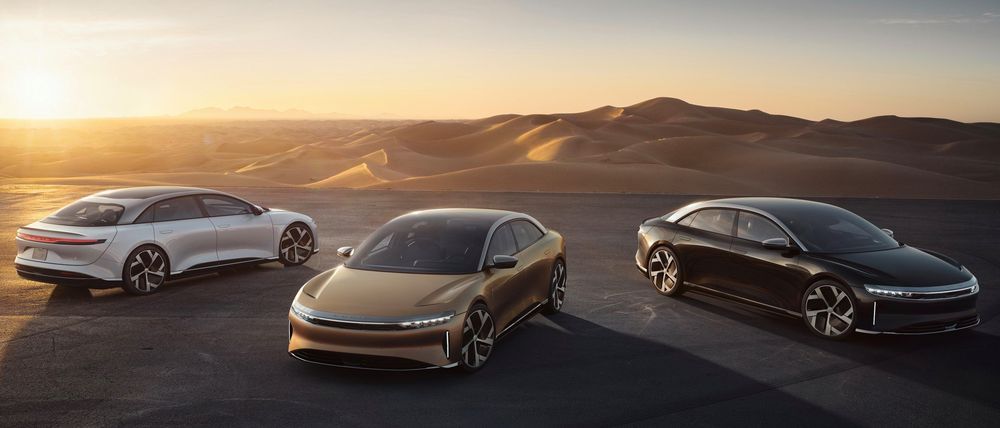
Lucid has finally fully unveiled the production version of its first car: the Lucid Air, a luxury electric sedan.
For those of you who have been following our coverage over the past few months, there won’t be many surprises since Lucid has gradually leaked the most important information. But it’s still worth diving a little deeper with all the final details.

Researchers in Korea have successfully developed a large-area, organic-solution-processable solar cell with high efficiency. They achieved their breakthrough by controlling the speed at which the solution of raw materials for solar cells became solidified after being coated. The team, led by Dr. Hae Jung Son from the Photo-electronic Hybrids Research Center of the Korea Institute of Science and Technology (KIST), have identified the difference in the mechanism of film formation between a small area and a large area of organic solar cells in a solution process, thereby making possible the development of high-efficiency, large-area organic photovoltaics.
If a photovoltaic material is made in the form of paint that can be applied to any surface, such as the exterior of a building or a car, it will be possible to achieve energy self-sufficiency and provide low-cost, eco-friendly energy to regions suffering from energy poverty. Such technology would provide easy installation of photovoltaics, even on urban buildings, and the photovoltaic panels could be maintained by re-applying the “paint.”
Solution-processable solar cells, which work by coating the surface with the solar cell solution, are not yet feasible for industry. Currently, such large-area photovoltaics present reduced performance and production difficulties due to material- and process-related limitations, and this has been an obstacle to commercialization.

Panasonic is adding another production line to the massive factory it operates with Tesla in Nevada, an expansion that will increase battery cell capacity by 10%.
The Sparks facility, dubbed Gigafactory 1, is the centerpiece of Tesla’s plan to expand global battery capacity and reduce the cost of electric vehicles. Panasonic has been its most important partner in that project, which, based on a recent agreement, should last until at least 2023.
Tesla and Panasonic initially planned for the Gigafactory to have the capacity to produce 35 gigawatt hours of batteries each year. That goal was achieved with 13 production lines. This latest expansion, which was first reported by the Reno Gazette Journal and confirmed by TechCrunch, will add a fourteenth line.
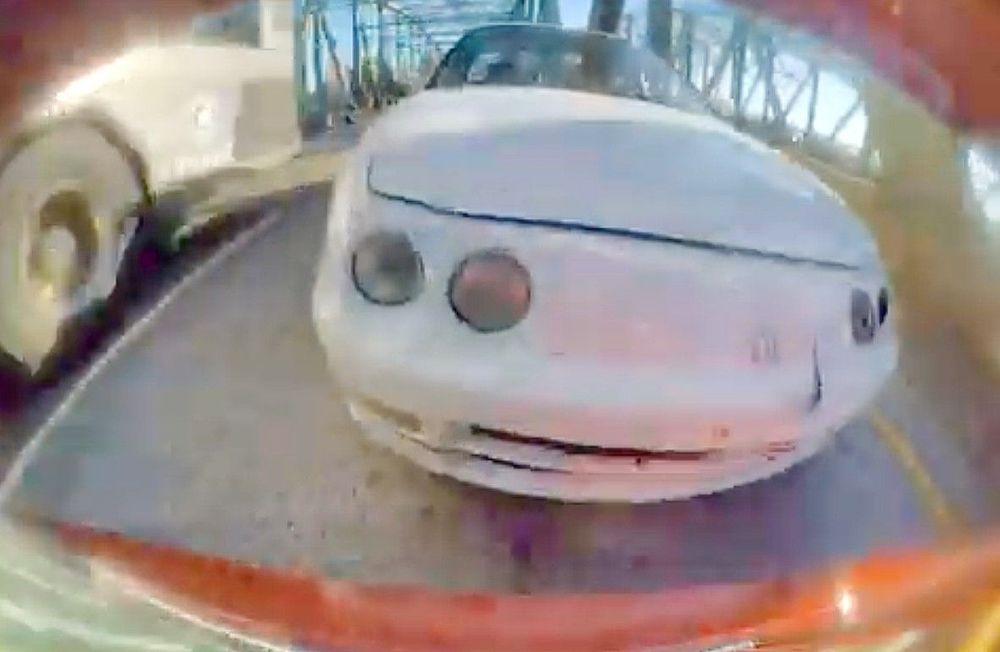
There are advantages to having a vehicle with instant acceleration. Stop lights become more fun, and occasionally, it’s equally to surprise some high-performance gas cars with a sudden sprint. At times, though, this instant acceleration becomes a safety feature, as recently proven by Tesla owner Daniel Spalding, who avoided a potentially nasty crash by a hair’s breadth thanks to his Model 3’s torque.
Spalding, who has been documenting his ownership experience in his YouTube channel, recently shared a rather tense video that he recorded recently. The video was brief, but it featured something that no driver ever wants to see from the rear — a fast-approaching car that’s not decelerating enough. Usually, incidents like this end up with both cars being damaged significantly. Some drivers and passengers may even get injured.
Fortunately for Spalding, his Model 3 can access its full power when he floors the accelerator. In his video’s description, the Model 3 owner noted that traffic in front of him came to a sudden stop, and as it turned out, the car behind him — what appeared to be an Acura Integra — was clearly not paying attention. When he realized that the car behind him was about to hit him, Spalding floored his Model 3’s accelerator.